Through a 39-day span, conversations around data protection and privacy, affordable internet, gender and ICTs, disability rights, health surveillance during COVID-19 times and internet shutdowns were held to contextually unpack the theme, ‘Towards a Digitally Inclusive and Rights-Respecting Africa’ at the recently concluded Digital Rights and Inclusion Forum (DRIF22). DRIF in its 9th year now is a platform where conversations on digital policy in Africa are shaped, policy directions debated and partnerships forged for action.
The 2022 edition had virtual and in-person sessions. A total of 13 virtual sessions were co-hosted by; Uhuru Tech Solution, Youth Hub Africa, Human Rights Journalists Network, BONews Service, Media Defence, Usmanu Danfodiyo University – Sokoto, Community Voices Zimbabwe, Africa Media and Information Technology Initiative (AfriMITI), Mozilla Foundation, Uzalendo Afrika Initiative, NamTshuwe Digital, and the Africa Internet Rights Alliance (AIRA).
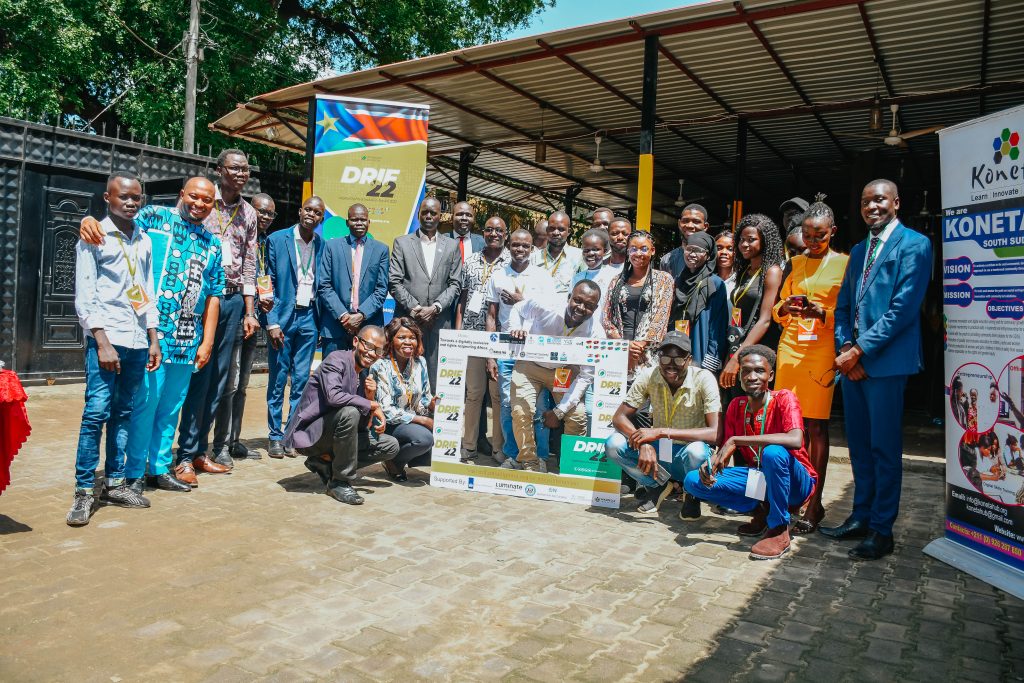
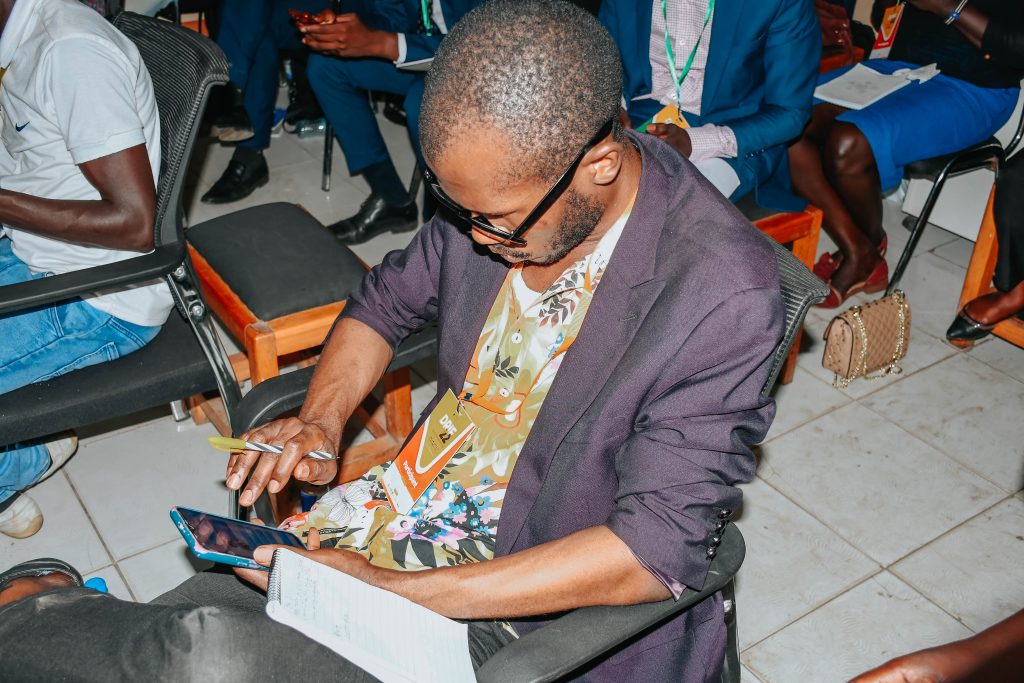
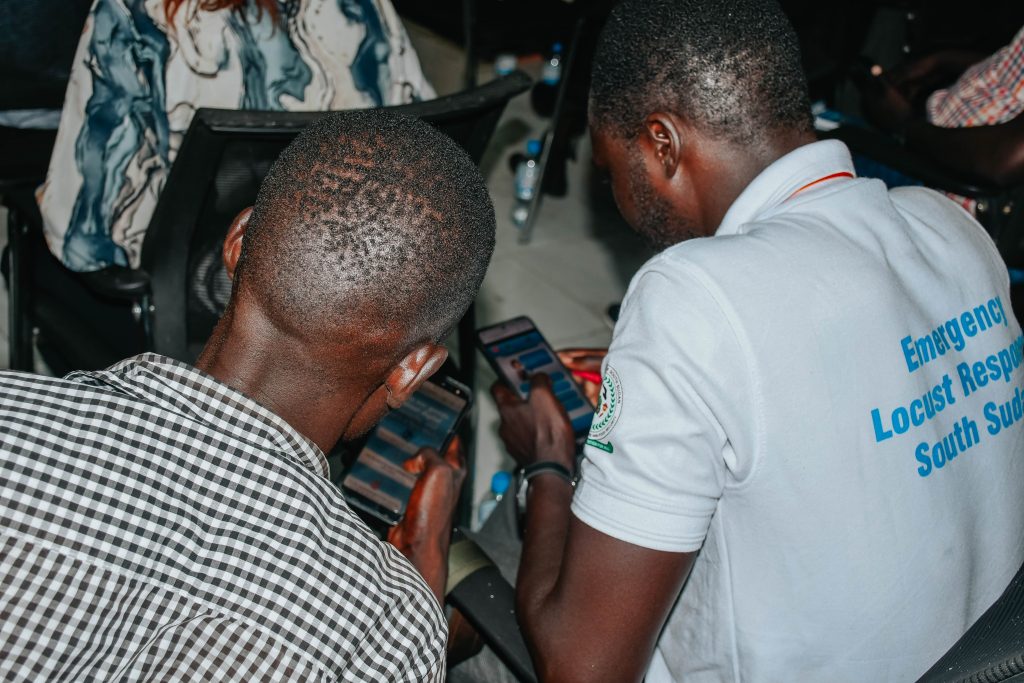
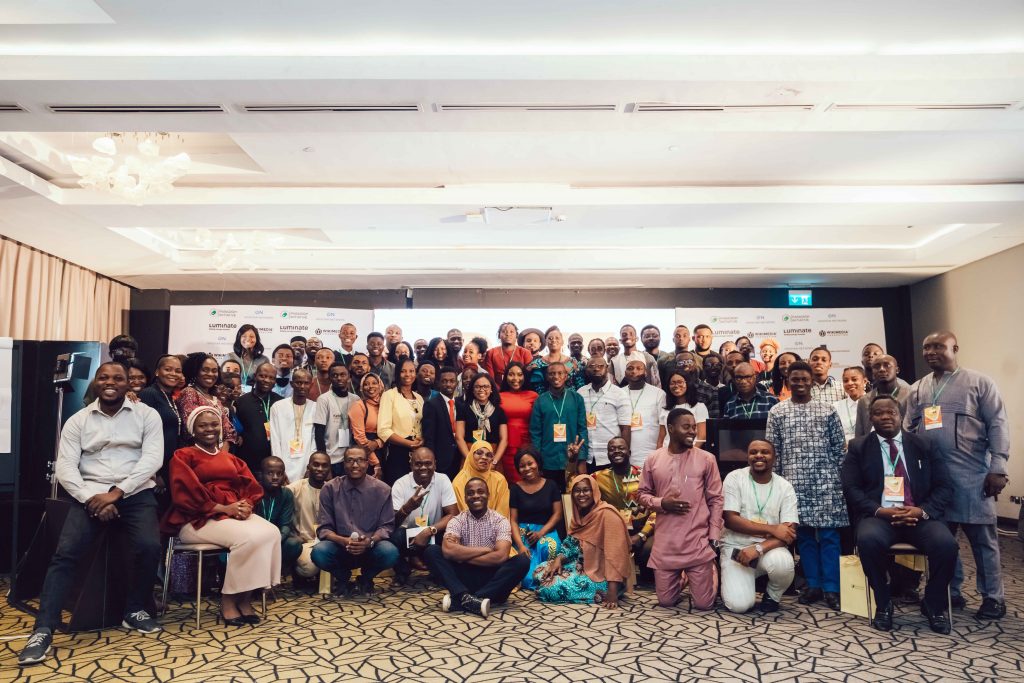
The country sessions were held in Namibia, Zimbabwe, DRC, Ghana, Nigeria, Zambia, Angola, The Gambia, Malawi, Cameroon, South Sudan, Tanzania, Senegal, CAR, Ethiopia, Kenya and Somalia.
Notable personalities at the virtual sessions included Commissioner Lawrence Murugu Mute, (Former Special Rapporteur on Freedom of Expression and Access to Information in Africa, 2017-2020 at the African Commission on Human and Peoples’ Rights), who delivered a keynote address at the opening session and emphasised the need for inclusion and the importance of bridging the digital divide for marginalised groups.
With the Deputy Minister of Information and Communication Technology Namibia, Emma Inamutila Theofelus, in attendance, the Namibia session hosted by the Digital Foundation of Namibia, brought together stakeholders in the digital rights and inclusion space to engage in matters affecting the space, seek common solutions, map strategies, and educate the public.
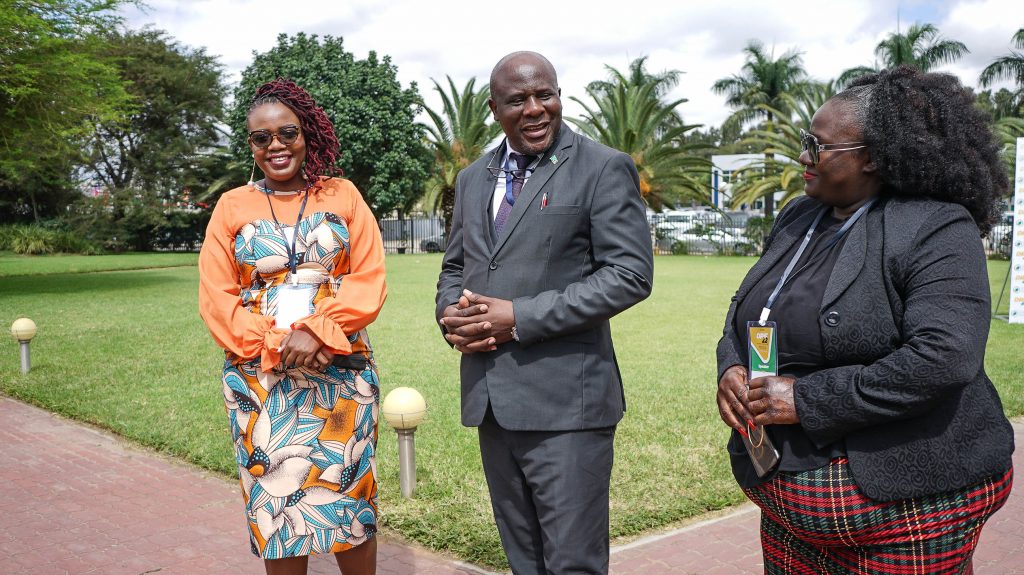
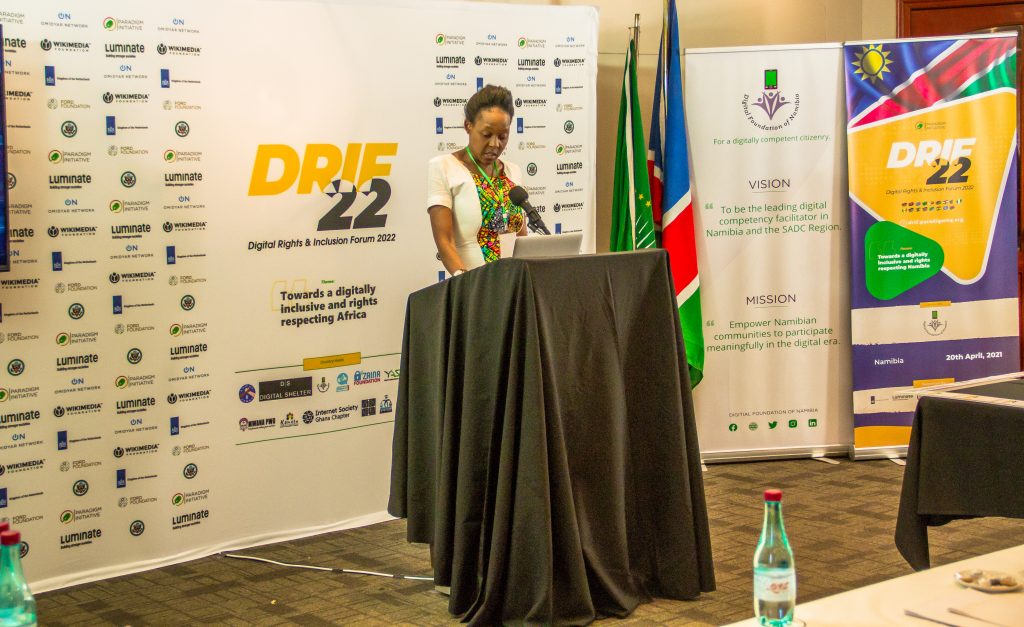
In Zimbabwe, Paradigm Initiative and partners, Media Alliance of Zimbabwe, Misa Zimbabwe, and Digital Age Conversations in an intensive session interrogated Zimbabwe’s digital rights and inclusion community on ways to shape a digital rights-respecting country. The session also unpacked children’s rights in the digital age, internet access, and media freedoms.
The Congolese Institute of Human Rights hosted DRC’s DRIF22 in-person session and a representative of the Congolese Digital Minister, Mr Prosper NTETIKA MBAKALA, the official representative of the Congolese Digital Minister, contributed to the discussion towards promoting and protecting digital rights in the country. With a battery of insightful legal panelists, the high moment of the session was a presentation by Kodjo NDUKUMA ADJAYI, a digital rights expert who examined the Deontological legal framework guiding digital rights in the Congo.
The Internet Society, Ghana Chapter & Inclusive Tech Group presented interesting digital rights and inclusion sessions with a great emphasis on inclusivity and Person With disabilities on how to bridge the digital gap for persons with disabilities (PWDs) and promote digital rights of PWDs through effective policy implementation.
The Nigerian sessions were co-hosted by TechHer, Keeping It Real Foundation (KIR), Africa-China Reporting Project (ACRP), and Stand to End Rape Initiative (STER) and they respectively unpacked the theme ‘Digital Inclusion: Where all rights begin’, by discussing digital and data rights, sexual gender-based violence and inclusivity for persons with disabilities.
During the Nigeria DRIF sessions, PIN launched the LIFE Legacy program, tracing PIN’s 15 years as one of Paradigm Initiative’s pilot digital inclusion programs, the organization is now scaling the carefully drafted program modules, resources, and technical know-how through partner organizations within the African continent to continue to carry on with the programs aims and objectives. The first set of partners to work with PIN in scaling the PIN LIFE programs in their respective locations/countries are; Mentor an African Child Initiative (MACI), Startup Kebbi (Kebbi), SureAid Development Initiative, Vision Alive Foundation, DigiCon Academy, Koneta Hub, and Asikana Network.
Permanent Secretary, Ministry of Information and Media, Republic of Zambia, Mr. Kennedy Kalunga, opened the Zambian DRIF22 in-person session. He highlighted the government’s position and openness in forging concrete strategies to promote human rights online and at the same time called on the media to exercise self-regulation. Panel discussions spanned the Impact of Social Networking on the 2021 General Elections in Zambia and the role of the media in relaying balance and factual information and the infringement of freedom of speech.
Mwana Pwo hosted the Angola session and a panelist, Alfredo Capitomolo during his presentation on Digital Literacy and Internet Democratization asserted the fact that connectivity in Angola remains a challenge due to its high cost though the country has a good mobile phone penetration.
Malawi held a high-level panel discussion, public lectures and digital exhibition under the chairmanship of Gospel Kazako, the Minister of Information and Government Spokesperson, who emphasized the need for equal access to include those marginalised. The session equally deepened strategic dialogue and accountability among key stakeholders on Internet access and interrogated the cost of being online in Malawi.
In Cameroon, digital rights experts, Avis Momeni, Secretary-General of Protege QV, Sophie Ngassa of the Center for Youth Education and Economic Development, along with other participants, delved into press freedom, digital rights and inclusion in Cameroon citing some concrete examples in line with past and current events in the country.
The session in South Sudan hosted by Koneta Hub unpacked the digital rights and inclusion challenges being experienced in the country and continent while providing recommendations to forge the rights of online users.
In Tanzania, Zaina Foundation organised DRIF22 under its national theme ‘Digital Rights and Inclusion for Sustainable Development in Tanzania’ where discussions cut across technology and people with disabilities, deliberations were also held with regards to the Electronic and Postal Communication Regulations of 2020 (EPOCA Regulations) with emphasis on online content amongst others.
In Senegal, we looked at how sustainable and neutral ICT institutions are in the country. Panelists presented a legal framework guiding digital rights in Senegal applauding the government’s role in providing technological infrastructures for an inclusive and digital vibrant community. Despite these advancements, lapses could be witnessed in the area of inclusivity, especially with persons with disabilities.
In Kenya, Paradigm Initiative welcomed digital rights stakeholders in a session that spotlighted youth empowerment in digital leadership in Kenya. Paradigm Initiative’s Executive Director, ‘Gbenga Sesan gave a road map on Kenya’s Strides in digitalisation citing the ingenious M-Pesa innovative solution.
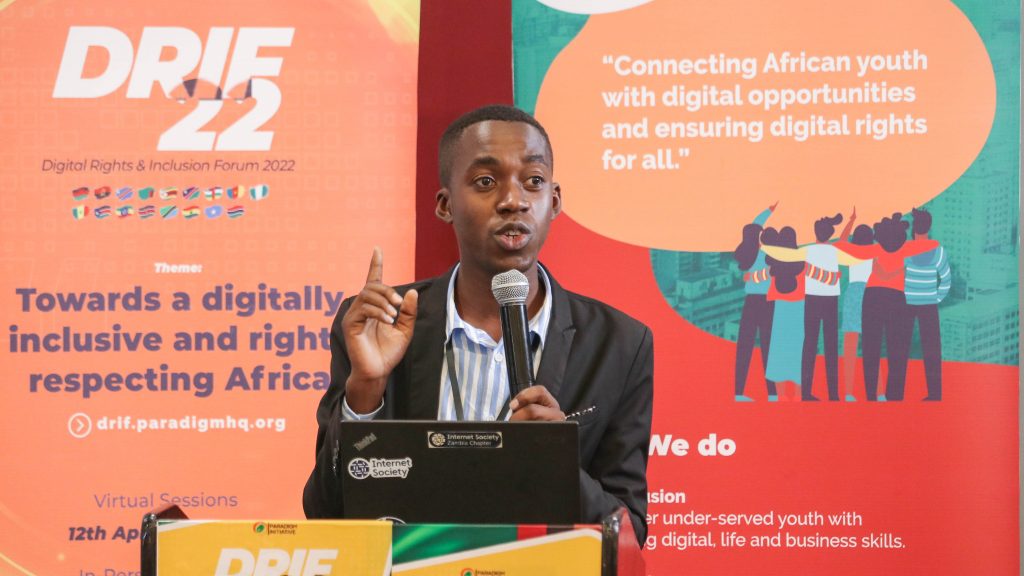
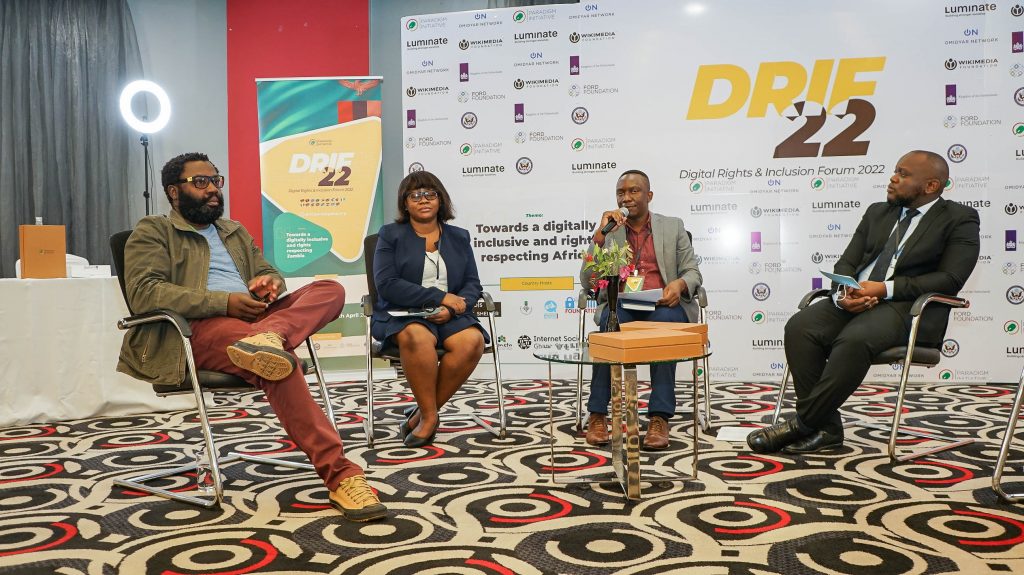
Towards a Digitally Inclusive and Rights-Respecting Africa
After examining country perspectives on different themes: digital inclusion, digital rights violation, disability rights and data protection, the discussions from the sessions brought about a truckload of responses on the way forward on how to achieve a digitally inclusive and rights-respecting Africa. The takeaways especially on areas to improve included;
- The absence of infrastructure in providing internet access.
- Low internet penetration rate.
- The high cost of mobile devices.
- Low prioritisation of digital literacy programs.
- The need to prioritise the needs of people with disabilities across governments, mass media, digital innovations, and tech applications.
- Lack of framework that protects PWDs.
- The under-representation of women in the digital space due to cultural differences or gender-based violence.
- The clampdown of free speech and internet shutdowns and their effects on the civic space.
- The recorded cases of infractions around thematic areas of misinformation, content moderation, and data protection as a result of lack of policies.
- The need to forge and build partnerships as well as create awareness around the digital landscape in Africa.

